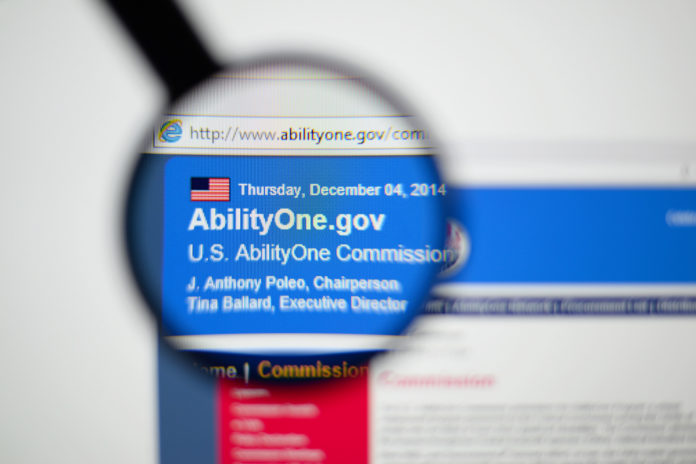The government sought to procure combat trousers in an open competition. The protester argued the trousers were on the AbilityOne Commission’s procurement list and thus had to be purchased from a nonprofit organization that employed blind people. The government argued that while AbilityOne has a mandatory source requirement, the procurement was excepted from that requirement. The court disagreed. The AbilityOne regulations evince a clear mandatory source requirement. While there are exceptions to that requirement, the procedures for those exceptions had not been followed, so they didn’t apply. The government was required to obtain the trousers from the protester.
Goodwill Industries of South Florida, Inc. v. United States, COFC No. 21-2323C
Background
The Defense Logistics Agency (DLA) issued a solicitation seeking to procure Women’s Hot-Weather Combat Uniform Trousers. DLA issued the solicitation as a competitive procurement set aside for small businesses and HUBZone small businesses.
Goodwill Industries of South Florida filed a protest with the Court of Federal Claims challenging the solicitation. Goodwill alleged that the trousers DLA sought were listed on the AbilityOne Commission’s procurement list. Under the Javits-Wagner-O’Day Act, items on the AbilityOne Program’s procurement list must be purchased from a nonprofit organization that employs the blind or severely disabled. Goodwill contended it was a non-profit organization that employed the blind and severely disabled, and that it was ready, willing, and able to provide the trousers. Thus, DLA should have purchased the trousers directly from Goodwill instead of issuing a competitive procurement.
Analysis
The Javits-Wagner-O’Day Act establishes a procurement system in which the government procures certain items from qualified nonprofit organizations that employ the blind or severely disabled. The Act established the AbilityOne Program, which oversees the procurement process. AbilityOne maintains a procurement list of products and services provided by nonprofit organizations. The Act’s statutes and implementing regulations state that nonprofits participating in the AbilityOne Program are mandatory sources of supply for items on the procurement list.
As noted, Goodwill maintained that the trousers were on the list and that it was a mandatory source for trousers. The government, however, argued that the mandatory source requirement was not absolutely mandatory. Rather, the government claimed the AbilityOne regulations allow AbiityOne to place limitations on procurements by adding only portions of a product requirement to the list. In this case, the government reasoned, the trousers were on the procurement list, but the list made it clear that only the Army was required to purchase trousers from a qualified nonprofit. While Goodwill had been providing the trousers to the Army, Goodwill was not a mandatory source for all the government’s trouser requirements.
The court found some problems with the government’s argument. First, the statutory language of the Javits-Wagner-O’Day Act clearly states that if a federal agency wants an item on the procurement list, it “shall” buy it from a qualified nonprofit. Likewise, the regulations implementing the Act provide that nonprofit organizations are “mandatory sources of supply for all entities of the government.” Contrary to the government’s position, this mandatory language in the statutes and regulations does not differentiate between federal entities that wish to buy items on the procurement list.
Additionally, the court noted that while the regulations allow exceptions to the mandatory source requirement, they also provide a procedure for those exceptions. Specifically, the nonprofit organization must determine that it cannot furnish the item by the government’s deadline. In that case, the AbilityOne Program issues a purchase exception to the procuring agency, which allows the agency to buy the items commercially. Here, neither AbilityOne nor the central nonprofit agency administering the program had followed the steps to issue a purchase exception. Nor was there any indication that Goodwill could not meet the government’s requirements.
The government argued that in 2006 the AbilityOne Commission had issued a clarification that divided items on the procurement list into three tiers: A-list items, which are commonly used in office and industrial setting; B-list items, which are not used in volume but have broad applicability across many federal agencies; and C-List items, which are niche products designed to meet the needs of a single federal agency. The government argued that the Army had placed the trouser on the C-list, so only the Army was required to purchase those items from Goodwill.
The court rejected this argument, noting that while the AbilityOne Commission had issued the 2006 clarification, which purported to add limitations to the mandatory source, that clarification had not been promulgated through the notice and comment rulemaking process. The clarification was thus subservient to the Javits-Wagner-O’Day Act and its implementing regulations. Neither the Act nor its regulation refer to an A, B, or C-list. Thus, the clarification was inconsistent with the existing statutes and regulations.
The court enjoined the government from procuring the trousers using competitive procedures.
Goodwill is represented by Alan M. Grayson. The government is represented by Ann C. Moto, Steven J. Gillingham, Patricia M. McCarthy, and Brian M. Boynton of the Department of Justice as well as Allison Colsey Eck of the Defense Logistics Agency.
–Case summary by Craig LaChance, Senior Editor





